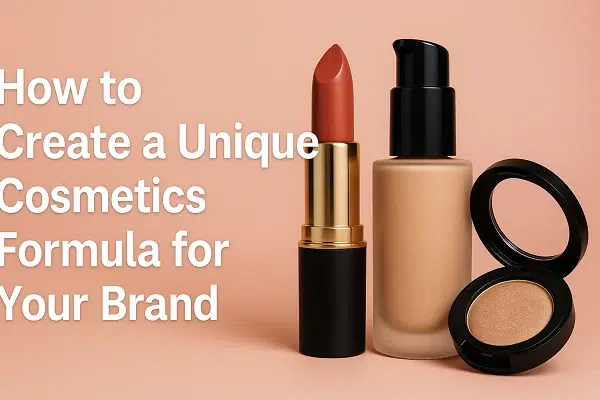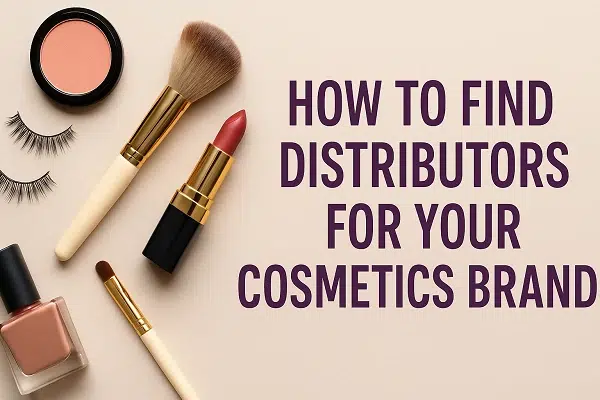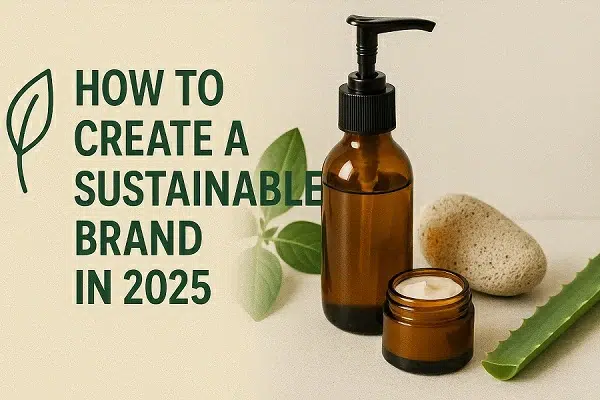Clean beauty refers to beauty products made with natural, non-toxic ingredients that are safe for both people and the environment. These products avoid harmful chemicals and prioritize transparency in their formulation.
The growing consumer demand for clean beauty products reflects a broader shift towards wellness-oriented lifestyles and a desire for more transparent, sustainable, and ethically produced personal care products.
Clean beauty products offer private label cosmetics manufacturers an opportunity to meet consumer demand for natural, transparent, and sustainable products. By embracing clean beauty principles, manufacturers can differentiate their offerings, build trust with consumers, and tap into a growing market segment.
Table of Contents
Understanding Clean Beauty
Characteristics of Clean Beauty Products
Natural Ingredients: Clean beauty products use natural and plant-based ingredients whenever possible, avoiding synthetic chemicals, parabens, phthalates, and other potentially harmful substances.
Transparency: Clean beauty brands prioritize transparency in ingredient sourcing and product formulation. They provide detailed ingredient lists and information about the sourcing and processing of their ingredients.
Cruelty-Free: Clean beauty products are often cruelty-free, meaning they are not tested on animals at any stage of production.
Eco-Friendly Packaging: Clean beauty brands often use sustainable and recyclable packaging materials to minimize environmental impact.
Free from Harmful Substances: Clean beauty products are formulated without ingredients that are known or suspected to be harmful to human health, such as sulfates, formaldehyde, and synthetic fragrances.
Ethical Sourcing: Clean beauty brands prioritize ethical sourcing practices, ensuring that ingredients are obtained in a sustainable and socially responsible manner.
Minimal Processing: Clean beauty products are minimally processed to retain the natural benefits of their ingredients and avoid the use of harsh chemicals and artificial additives.
Compaired with traditional beauty products, clean beauty products has great advantages in their ingredient transparency, formulation philosophy, safety considerations, environmental impact, and commitment to cruelty-free practices.
Importance of Transparency in Makeup Ingredients
- Ensuring consumer safety by allowing informed choices.
- Allowing individuals to avoid allergens and irritants.
- Empowering consumers to align with their values and preferences.
- Building trust between brands and consumers.
- Facilitating regulatory compliance.
Trends in Clean Beauty
Shift Towards Natural and Organic Ingredients
This trend involves a growing preference among consumers for beauty products formulated with natural and organic ingredients. These products are free from synthetic chemicals and are perceived to be gentler on the skin. Brands are increasingly incorporating botanical extracts, essential oils, and plant-based ingredients into their formulations to meet this demand.
- Growing preference for natural and organic ingredients in beauty products.
- Increasing awareness about the benefits of plant-based and botanical ingredients.
- Demand for products free from synthetic chemicals, parabens, and sulfates.
Rise of Vegan and Cruelty-Free Beauty Products
The rise of vegan and cruelty-free beauty products reflects consumers’ concerns about animal welfare and environmental sustainability. Vegan products contain no animal-derived ingredients, while cruelty-free products are not tested on animals. This trend reflects a broader shift towards ethical and compassionate consumption, with consumers actively seeking out products that align with their values.
- Surge in popularity of vegan beauty products not containing any animal-derived ingredients.
- Increasing consumer consciousness about animal welfare, driving demand for cruelty-free alternatives.
- Adoption of vegan and cruelty-free certifications by brands to meet consumer expectations.
Increased Focus on Sustainable Packaging
Sustainable packaging has become a prominent trend in the beauty industry, driven by growing environmental awareness and concern about plastic pollution. Brands are adopting eco-friendly packaging materials such as recycled plastics, glass, and biodegradable alternatives. Additionally, there’s a focus on reducing packaging waste through innovative design, refillable containers, and minimalistic packaging solutions.
- Heightened awareness about the environmental impact of packaging waste in the beauty industry.
- Shift towards eco-friendly packaging materials such as glass, recycled plastics, and biodegradable options.
- Emphasis on reducing packaging waste through innovative design and refillable packaging solutions.
Opportunities for Private Label Cosmetics Manufacturers
This opportunity involves private label cosmetics manufacturers capitalizing on the increasing demand for clean beauty products among consumers. By offering a range of clean beauty options, manufacturers can attract more customers and stay ahead of market trends. This includes formulating products with natural, non-toxic ingredients and prioritizing transparency in ingredient sourcing and formulation processes.
Private label cosmetics manufacturers have the advantage of offering customization and formulation flexibility to meet the diverse needs and preferences of their clients. This includes developing unique formulations tailored to specific target markets, such as sensitive skin or anti-aging products. Manufacturers can also adjust product textures, scents, and packaging according to client preferences, allowing for greater product differentiation and market competitiveness.
Collaborating with clean beauty influencers and brands presents an opportunity for private label cosmetics manufacturers to expand their reach and credibility within the clean beauty community. By partnering with influencers and brands that share similar values and principles, manufacturers can leverage their expertise and influence to promote their products to a wider audience. This can lead to increased brand visibility, consumer trust, and sales opportunities within the clean beauty market.
Challenges and Considerations
Sourcing High-Quality Clean Ingredients
This refers to the process of procuring natural, non-toxic, and ethically sourced ingredients for use in clean beauty products. Private label cosmetics manufacturers must carefully select suppliers and ensure that the ingredients they source meet the standards of cleanliness and quality required for clean beauty formulations. This involves conducting thorough research, verifying ingredient origins, and establishing partnerships with reputable suppliers committed to sustainability and transparency.
Regulatory Compliance and Certification Processes
Regulatory compliance and certification processes involve adhering to industry regulations and obtaining necessary certifications to ensure that clean beauty products meet legal and safety standards. Private label cosmetics manufacturers must navigate complex regulatory frameworks governing cosmetics, including labeling requirements, ingredient restrictions, and product testing protocols. This may involve working closely with regulatory agencies, obtaining certifications such as organic or cruelty-free labels, and staying informed about evolving regulatory trends and requirements.
Balancing Performance with Clean Formulations
Balancing performance with clean formulations involves creating beauty products that not only meet clean beauty standards but also deliver effective results and user satisfaction. Private label cosmetics manufacturers must strike a balance between formulating products with natural, non-toxic ingredients and ensuring that they meet consumers’ expectations for performance, efficacy, and sensory experience. This requires careful formulation development, testing, and optimization to achieve the desired balance between clean ingredients and product performance without compromising on quality or safety.
Conclusion
In summary, the ascent of clean beauty marks a significant turning point in the cosmetics industry. For private label cosmetics manufacturers, this trend signifies a valuable opportunity to meet evolving consumer preferences and establish themselves as leaders in the market.
By embracing transparency, quality, and innovation, manufacturers can navigate the challenges posed by clean beauty while harnessing its potential for growth and differentiation. In doing so, they position themselves for success in an increasingly conscientious and discerning marketplace.







